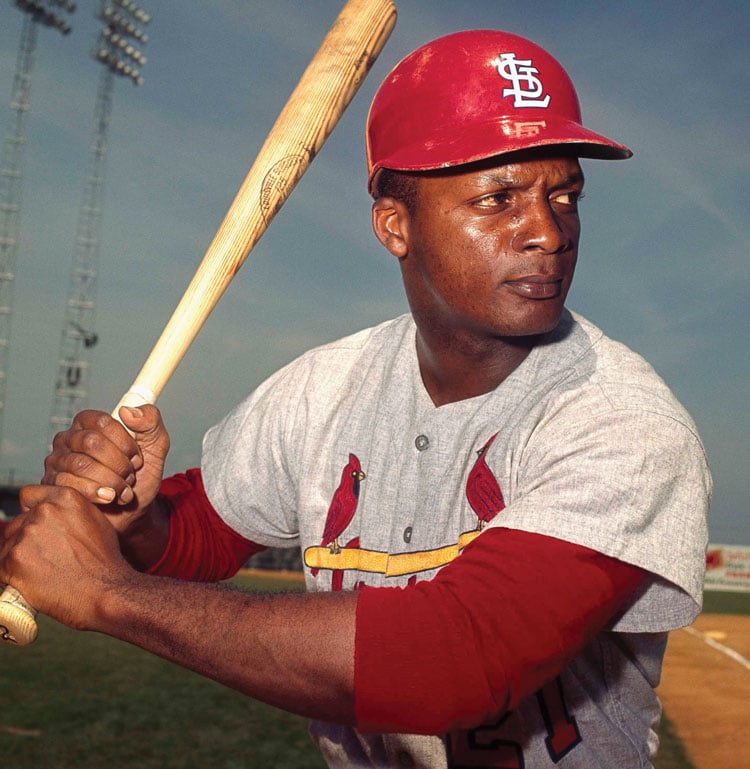

Flood.”Curt Flood’s telegram to Senators owner Robert Short" Thanks for your confidence and understanding. Ted Williams, who had been opposed to Flood’s lawsuit, was his manager.ĭespite Williams’ strong show of support for the embattled former star, Flood left the team in late April and never played again.
#Curt flood free
Meanwhile, Flood sat out the 1970 season but returned in 1971 to play 13 games for the Washington Senators, who had effectively offered Flood a deal that included a form of free agency if he did not want to return after the 1971 season. No active players stood by Flood at the time he was all alone in his fight for everyone’s betterment. However, many then-current and former stars were opposed to Flood’s fight, including Joe Garagiola, who actually testified against flood in one of the trials. MLB legends including Hank Greenberg and Jackie Robinson testified on Flood’s behalf, as did former owner Bill Veeck. In January 1970, Flood filed a lawsuit against Kuhn and the league, which would eventually be argued before the Supreme Court in 1972. Unsurprisingly, Kuhn did not appreciate a player asking to demolish the status quo that kept owners rich and controlled players he denied Flood’s request.įlood could have accepted what was then a lucrative contract, but he never wavered. I, therefore, request that you make known to all Major League clubs my feelings in this matter, and advise them of my availability for the 1970 season.”" I have received a contract offer from the Philadelphia club, but I believe I have the right to consider offers from other clubs before making any decision. I believe that any system which produces that result violates my basic rights as a citizen and is inconsistent with the laws of the United States and of the several States.It is my desire to play baseball in 1970, and I am capable of playing. "“December 24, 1969After twelve years in the major leagues, I do not feel I am a piece of property to be bought and sold irrespective of my wishes. On Christmas Eve 1969, Flood wrote to Commissioner Bowie Kuhn asking to become MLB’s first true free agent: More important than that, I told him even if he won, he’d never get anything out of it-he’d never get a job in baseball again.”"īut then Flood asked Miller if his fight would benefit other players, and the union leader replied that it would help players of his age “and those to come.” The centerfielder replied, “That’s good enough for me.”įlood received a 25-0 unanimous vote of support from the union. "“I told him that given the courts’ history of bias towards the owners and their monopoly, he didn’t have a chance in hell of winning.
#Curt flood for free
Instead, on December 13, he went to the MLBPA’s executive committee meeting in Puerto Rico to discuss suing the league for free agency and abolishing the reserve clause, which he felt was tantamount to indentured servitude. Then-head of the players’ union Marvin Miller warned Flood what he was up against: On December 13, 1969, MLB star Curt Flood met with the MLBPA about suing the league for free agency, because he did not want to be traded to the Phillies While the Phillies did offer Flood significantly more than the raise the Cardinals had denied him the year before, Flood did not want to play for them. Home of a ballclub rivaled only by the Pirates as the least cheerful organization in the league… I did not want to succeed Richie Allen in the affections of that organization, its press and its catcalling, missile-hurling audience.”Curt Flood" Flood knew what Dick Allen – who was snubbed by the Hall of Fame earlier this month – had endured at the hands of Phillies fans. And Flood was actually being traded, along with other players, in exchange for Allen.

Then, in October, the Cards traded Flood to the Phillies. Instead, they began a smear campaign against him and removed him as co-captain.

He wanted a significant raise, and the Cardinals weren’t willing to pay up. In 1968, Sports Illustrated named him “Baseball’s Best Center Fielder.”įlood’s relationship with his team began to sour ahead of the 1969 season. Between 1963-69, he played in three All-Star Games, helped the Cardinals win three pennants and two World Series, and won a Gold Glove every single season. Twice, the outfielder led MLB in at-bats, and once in hits. In the midst of MLB’s ninth work stoppage in the history of the game, it’s fitting to honor Curt Flood on the anniversary of the union meeting at which he made his case.īetween 1956-1969, Flood played for Cincinnati and then St.


 0 kommentar(er)
0 kommentar(er)
